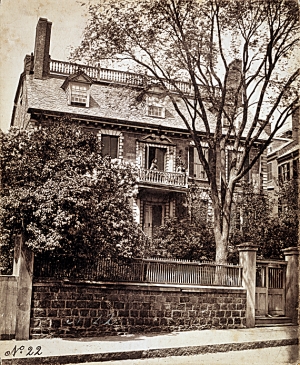
Well before the term "historic preservation" came into vogue, New Englanders were saving old houses. The first documented preservation effort in America was launched at Deerfield, Massachusetts, in 1847, where residents joined forces to save the Old Indian House, survivor of an infamous 1704 attack on the village. Although the house was torn down, consciousness had been raised and a number of subsequent campaigns, like those for Mount Vernon and Independence Hall, were successful. In New England, preservation victories were tempered by major losses; most notably the 1863 demolition of Boston's venerable 1737 John Hancock House (Fig. 1). Throughout the nineteenth century, individuals like Henry David Thoreau championed saving old houses for their aesthetic value. Antiquarians like Deerfield's George Sheldon and Cummings Davis in Concord, regularly accessed neighbors" attics and cellars to "rescue" early artifacts and documents. Often viewed as eccentrics, these avocational preservationists were building a compelling case for the need to protect the material culture of seventeenth- and eighteenth-century New England.